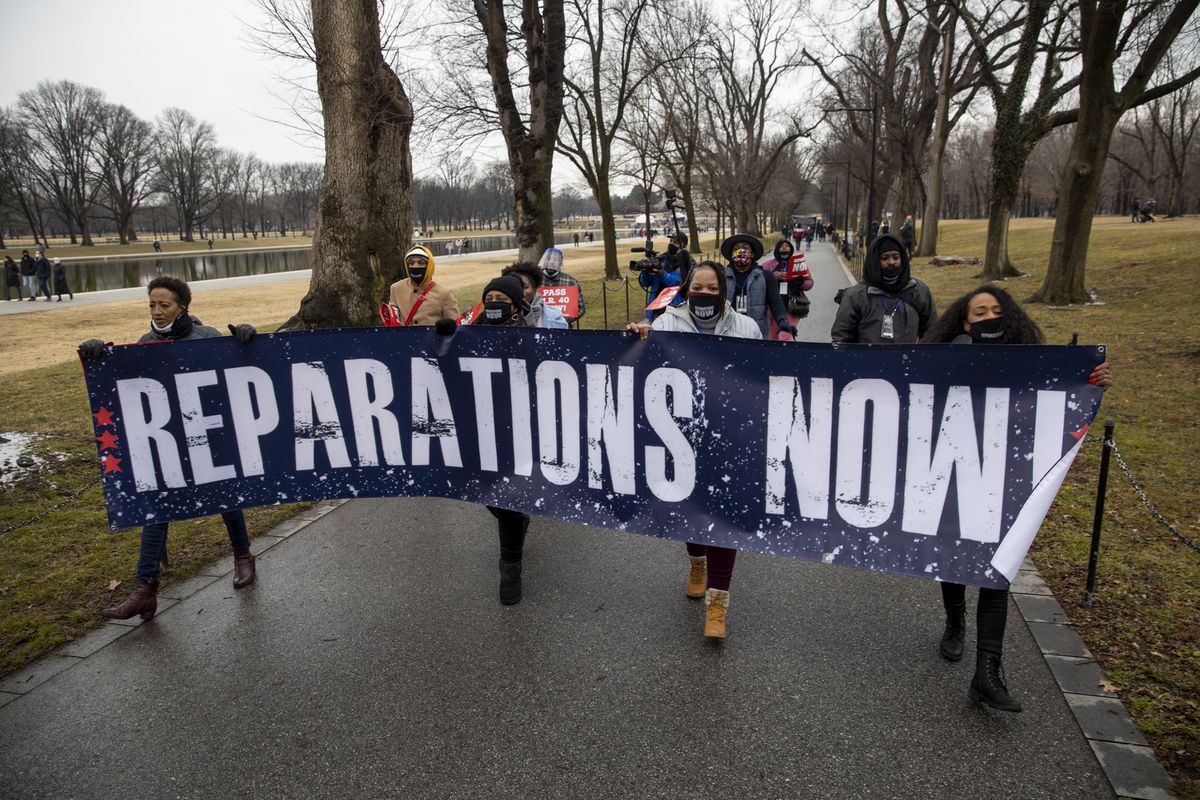Image via
On Monday, the Evanston City Council voted 8-1 to start distributing funds for its nation-leading reparations program, which is funded by the town’s 3 percent recreational cannabis sales tax.
$25,000 grants will be available to Black households for buying a home or paying renovation, interest, or fees on a property that a recipient already owns. To be eligible for the grants, individuals must have been affected by discriminatory redlining practices in the Chicago suburb or be the direct descendent of someone who has.
“It’s the most appropriate use for that sales tax,” says the fund’s champion, City Council member Robin Rue Simmons, in a quote reported by a local news site. “In our city, 70% of the marijuana arrests were in the Black community. And we are 16% of the community.”
A total of $400,000 will go towards the housing funds, in the first phase of the program’s total budget of $10 million.
Given the demonstrably racist policing tactics of the War on Drugs, there has been a lot of support for cannabis legalization profits to go towards BIPOC communities. For one, legalization has not proven to reduce racism when it comes to marijuana, given static racial disparity in possession charges and the under-representation of BIPOC executives in the legal cannabis industry.
Second, legal states’ social equity programs have yet to prove their effectiveness. In Illinois, where adult-use cannabis went on sale at the beginning of 2020, social equity programs have yet to be fully implemented. Los Angeles is another example of a failed social equity system, as retail licensees have largely been left hanging by the city’s licensing authority, prohibiting pending POC-business owners from getting state licenses.
Evanston will be the first US jurisdiction to explicitly funnel cannabis taxes to a reparations fund — not to mention the first to ever have a reparations fund. Support for the fund has spread wildly, with actor Danny Glover even voicing his support.
“This is the most intense conversation I believe that we’re going to have in the 21st century, right here — reparations,” he said at an Evanston town hall meeting on the subject. “This is a remarkable step.”
Not everyone is in favor of the reparations fund being distributed through housing grants. Evanston City Council member Cicely Fleming provided the single vote against the housing grants plan, saying that reparations that are not cash payments are not acceptable.
“Let’s not short-change Black people on something they’ve been waiting centuries for,” she said in a press statement announcing opposition to the plan.
City officials say that giving out cash payments would create a tax burden for those that received them.
Evanston will hold a series of public meetings on how to spend the rest of the fund’s money in future phases.
The word “reparations” refers to any step taken to make amends. As a handy guide from Teen Vogue says, throughout the course of history, groups like Holocaust victims and Japanese Americans who were taken to World War II internment camps have received such financial payments.
Debate has raged over what kind of reparations Black communities in the United States will receive. In 2019, legislation was introduced in Congress to study the implementation of reparations.











